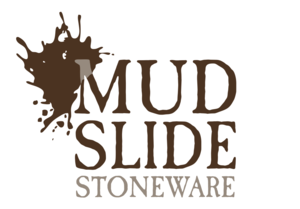About Fermentation
Fermentation is an ancient method of food preservation that is safe, simple and healthy.
Fermented foods are the best natural source of probiotics, which contribute to the vitality of your body's microbiome. Just as importantly, they are delicious! Traditionally fermented foods include yogurt, bread, wine, chocolate, sauerkraut, cheese, tea and kombucha.
Besides a Mudslide crock, Sandor Katz's books, Wild Fermentation and The Art of Fermentation are must haves for any home fermenter. Katz's website is also an amazing repository of information on the benefits of fermentation, the science of how it works, and recipes, both basic and obscure.
How to Use Your Mudslide Crock
Most vegetable ferments are produced by submersion in salty liquid, or brine and no inoculation is required. The brine is achieved either by adding salt to the vegetables and allowing the salt to pull moisture from the veggies (like cabbage, in sauerkraut) or by adding salted water to vegetables that don't naturally have much moisture (spicy peppers, for example). The custom weight that comes with your crock keeps vegetables submerged in brine while they ferment, preventing mold growth. Fill the moat (water lock) with water (tap water is fine) and place the lid in the moat. Positive pressure from the ferment will bubble out through the moat and through the little notch in the lid. The combination of lid and water lock will keep your ferment free of flies and other foreign contamination. Allow to ferment at room temperature for 2 to 6 weeks depending on taste preference and style of fermentation.
Kombucha and vinegar require a mother or SCOBY to successfully ferment. You can find these at your local brewery supply store or online. Once you start a batch, place the cloth cover with elastic band (included with crock) over the crock to make sure fruit flies don't get it in. Fruit flies love vinegar and kombucha and if you let them they will use your SCOBY to make more fruit flies.
Recipes are everywhere online and in books. Take a workshop, attend your nearest fermentation festival (Albuquerque, San Diego, Los Angeles, Santa Rosa CA, Austin, Portland, Wisconsin, and Boston all have fermentation festivals... more cities adding festivals soon!) or just ask friends to help you figure it out. Fermentation is fun, easy, and delicious!
